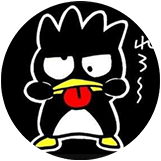Godzilla Minus One: A Roaring Success
When we heard about Godzilla Minus One, we were curious. It was supposed to be a prequel to the original Godzilla film from 1954, which was a big deal. But this one promised something different. And god damn, did it deliver!
Godzilla Minus One is essentially a remake of the original (and still spectacular) 1954 Godzilla. It captures the same intense atmosphere and raw emotion that made the first film a classic. Unlike many of its predecessors, Godzilla Minus One goes back to the roots of what made Godzilla terrifying. The film dives deep into the raw, primal fear that Godzilla represents. The film is set in post-war Japan, a country still reeling from the devastation of World War II. The atmosphere is bleak, and the people are struggling to rebuild. This setting alone makes the film stand out because it adds a layer of emotional depth and realism that is often missing in Hollywood's flashy monster flicks.
Why is it Called Godzilla Minus One?

The title Minus One is intriguing. It signifies that this is a prequel to the original Godzilla film, set before the events of the 1954 Godzilla film. It implies a state even worse than zero, a nation at rock bottom, only to be confronted by the king of monsters. This clever naming sets the tone for the entire movie: dark, intense, and unrelenting.
A Return of the Classic Monster Movie

From the moment Godzilla shows up, within the first ten minutes, you know this is a different beast. He crashes onto the screen like a mean green wrecking machine, leaving no doubt about his destructive intentions. This Godzilla is not a misunderstood creature or an accidental hero. He is pure, unfiltered chaos and bringer of destruction. The way the film handles his introduction is brilliant – no slow build-up, just immediate, heart-pounding action.
Character Building at Its Best

One of the most impressive aspects of Godzilla Minus One is the character development. The human characters aren't just cannon fodder for the monster. They are well-developed, with compelling backstories and genuine motivations. You care about their fates, which makes the stakes feel real. This focus on character building is something that has often been missing in other Godzilla films, especially the Hollywood versions.
Godzilla Minus One: Hollywood Hold My Beer
So why did Godzilla Minus One perform so well at the box office? It's simple: it respects its audience. It doesn't rely on over-the-top special effects or shallow storylines. Instead, it offers a gripping narrative, believable characters, and a Godzilla that is true to its roots. Many fans are using this film as a benchmark to criticize Hollywood movies, which they feel have been in decline. The comparison highlights a growing sentiment that Hollywood has lost touch with what makes a good monster movie: heart, story, and genuine fear.
Hollywood often interprets a remake or reboot as a time to reinvent the wheel. This can lead to a significant departure from the original source material, which is often times met with backlash from fans. Take The Witcher, for example. Although it's not a remake of a film, it strays far from the beloved source material, angering fans of the game and the books. The desire to put a new spin on things can sometimes overshadow what made the original so special in the first place. Remember the saying If It Isn't Broke Don't Fix It?
History of Godzilla

Over the decades, Godzilla has evolved into more than just a cinematic creature. It has become a pop culture icon in Japan, representing resilience and the nation's ability to rebuild and recover from disaster. The monster's repeated rampages and the subsequent recovery of the cities it destroys mirror Japan's own history of overcoming adversity. Godzilla embodies the collective anxiety and hopes of a nation that has faced significant challenges but continues to endure and thrive.
The Godzilla franchise has had its ups and downs. After the original 1954 classic, the sequels often wandered off in tone. We had playful entries like Son of Godzilla, which, while fun, lacked the gravitas of the original. The Hollywood renditions, starting with Godzilla (1998), faced criticism for straying too far from the iconic design and essence of the character.
More recently, the Hollywood-produced Godzilla films have tried to blend spectacle with some degree of depth. Godzilla (2014) and Godzilla: King of the Monsters (2019) brought back some of the original menace, but often relied heavily on CGI and grandiose battles. While these films had their moments, they sometimes felt like they were more about the spectacle than the story. Godzilla vs. Kong (2021) took the franchise in a more action-packed direction, focusing on the epic showdown between two titans. These movies, while entertaining, often felt detached from the gritty realism and deep symbolism that characterized the original Godzilla films.
Godzilla: A Pop Culture Phenomenon
Godzilla's influence on Japanese pop culture is immense. It has spawned an entire genre of kaiju (giant monster) films, influencing countless movies, TV shows, comics, and video games. The character has appeared in over 30 films, becoming a beloved figure not only in Japan but worldwide. Godzilla's image is ubiquitous in Japanese media, merchandise, and even in international collaborations, cementing its status as a global pop culture icon.

Godzilla serves as a cultural bridge between Japan and the rest of the world. The character's widespread popularity helps to promote Japanese culture internationally, fostering a greater appreciation for the country's media and storytelling traditions. Through Godzilla, many fans are introduced to other aspects of Japanese pop culture, from Anime and Manga like Kaiju No. 8 to other kaiju films like Pacific Rim.
An Absolute Must Watch for Fans of Japanese Pop-Culture

Godzilla Minus One is an Atomic Breath of fresh air in a franchise that has seen it all. It takes us back to the essence of what Godzilla should be: terrifying, unstoppable, and deeply symbolic. If you're a fan of monster movies, this film is a must-watch. It's a reminder that sometimes, going back to basics is the best way forward. And in a time when Hollywood is often criticized for losing its way, Godzilla Minus One stands as a shining example of how to do it right.




















Leave a comment
Please note, comments need to be approved before they are published.